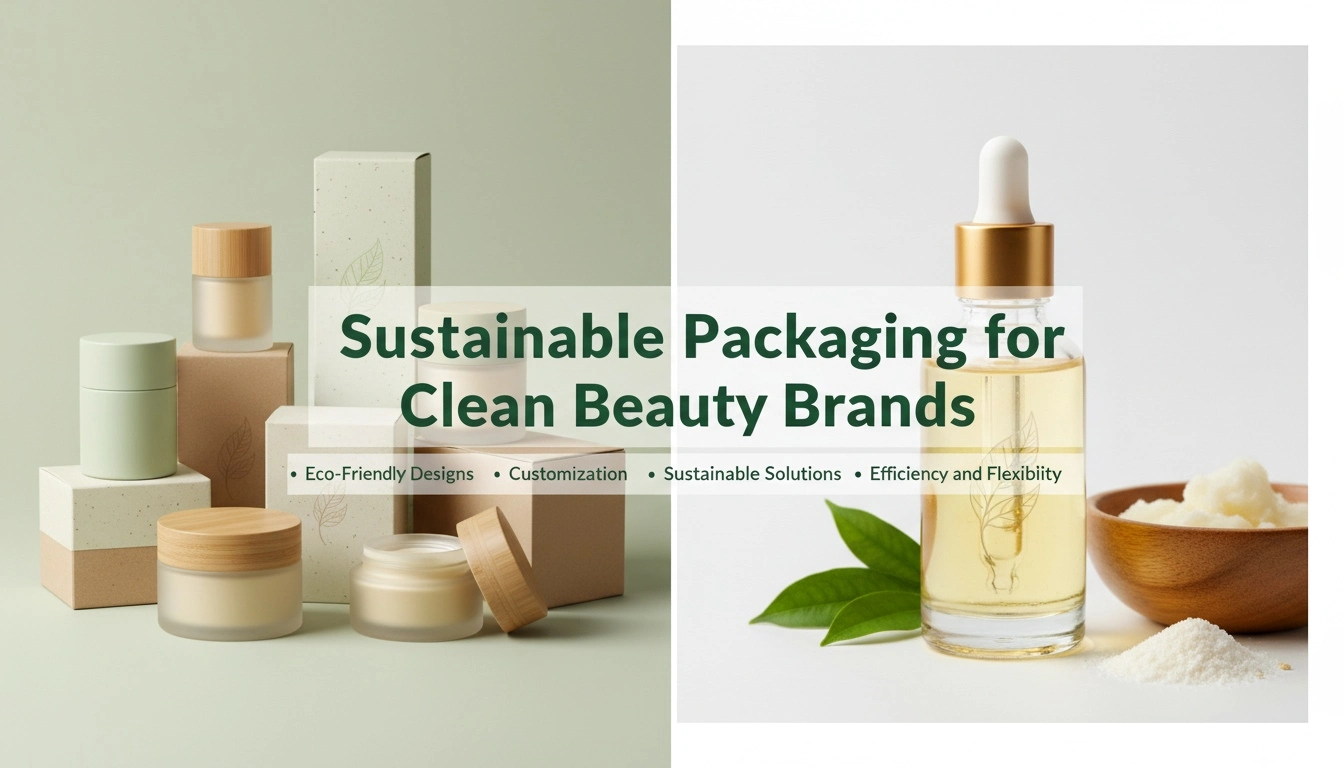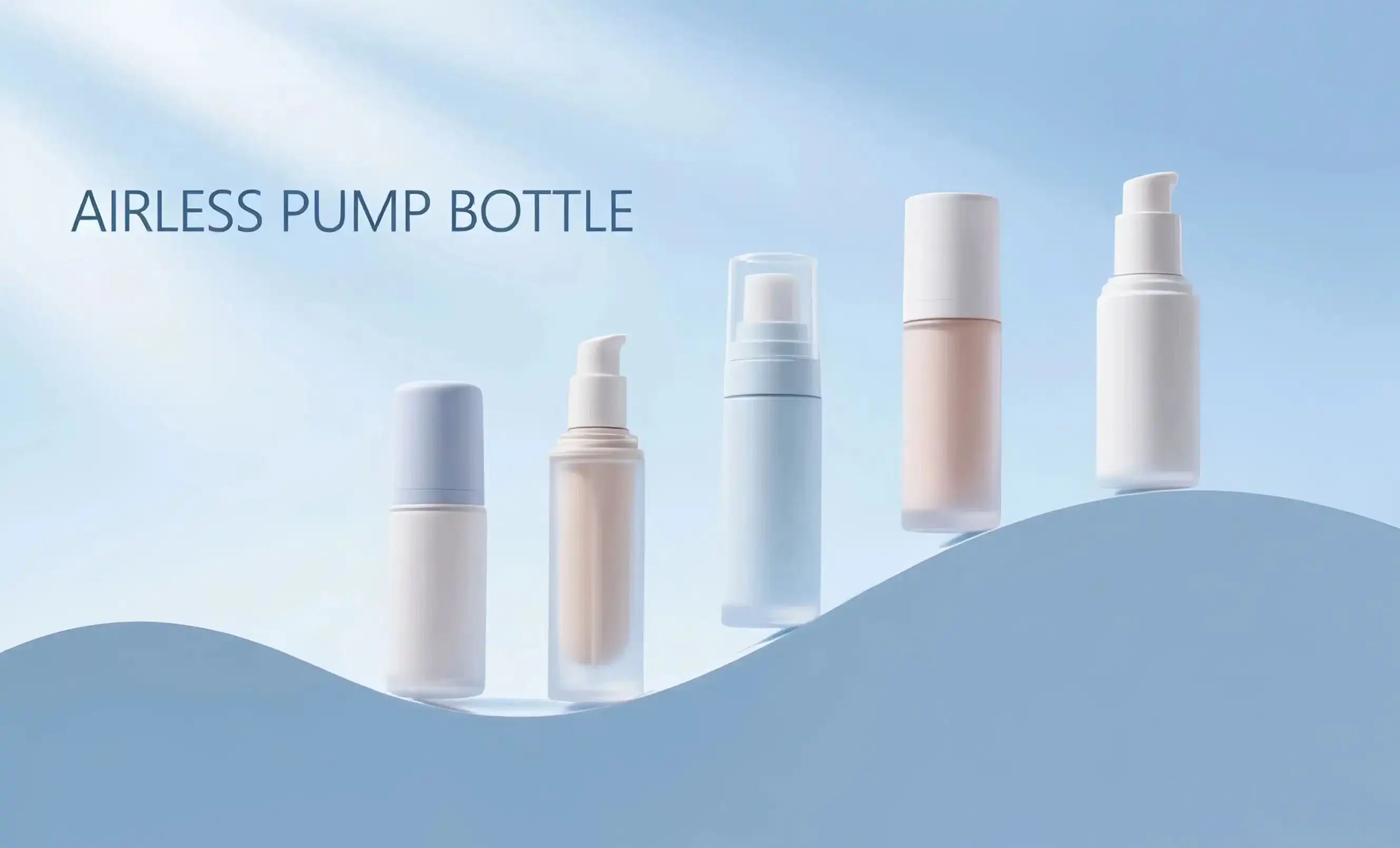Key Components of an Airless Pump Bottle Explained
Understanding the intricate design of an airless pump bottle requires familiarity with its key components. Each element plays a crucial role in the bottle's functionality and effectiveness:
The Outer Container
The outer container of an airless pump bottle is typically made from durable, high-quality materials such as plastic or glass. This component not only houses the product but also provides protection against external factors. The container's design can vary widely, allowing for customization to suit different brand aesthetics and product requirements.
The Inner Container or Pouch
Inside the outer container lies a flexible inner container or pouch that holds the actual product. This component is crucial to the airless system as it contracts as the product is dispensed, maintaining a vacuum seal and preventing air from entering.
The Pump Mechanism
The pump mechanism is the heart of the airless bottle system. It consists of a spring-loaded piston that, when pressed, creates pressure to dispense the product. This mechanism is designed to be airtight, ensuring that no air enters the container during use.
The Dispensing Nozzle
The dispensing nozzle is where the product exits the bottle. It's designed to control the flow of the product and can be customized to dispense different amounts or in various patterns, depending on the product's consistency and intended use.
The Base
The base of the airless pump bottle often contains a one-way valve that allows the inner container to contract without letting air in. This component is essential for maintaining the vacuum seal within the bottle.
How Does an Airless Pump Bottle Prevent Contamination?
The prevention of contamination is one of the primary benefits of airless pump bottle technology. This innovative packaging solution employs several mechanisms to keep products pure and potent:
Vacuum-Sealed Environment
The core principle behind airless pump bottles is the creation and maintenance of a vacuum-sealed environment. As the product is dispensed, the inner container contracts, eliminating any air space within the bottle. This vacuum prevents oxidation, which can degrade sensitive ingredients and reduce product efficacy.
Minimal Product Exposure
Unlike traditional pump bottles or jars, airless pump bottles minimize the product's exposure to air and potential contaminants. The product is dispensed through a small opening, and only the amount needed is exposed, leaving the rest of the product untouched and protected within the sealed container.
Reduced Risk of Bacterial Growth
By eliminating air from the container, airless pump bottles create an environment that is less conducive to bacterial growth. This is particularly important for preservative-free or natural formulations that may be more susceptible to microbial contamination.
Protection from External Contaminants
The closed system of an airless pump bottle provides a barrier against external contaminants such as dust, dirt, and airborne particles. This protection is especially valuable for products used in environments where cleanliness is a concern, such as bathrooms or outdoor settings.
The Science Behind Airless Pump Technology
The effectiveness of airless pump bottle technology is rooted in scientific principles that govern pressure, vacuum, and fluid dynamics. Understanding these concepts helps to appreciate the sophistication of this packaging solution:
Vacuum Pressure Principles
Airless pump bottles operate on the principle of vacuum pressure. As the product is dispensed, the volume inside the container decreases, creating negative pressure. This negative pressure causes the flexible inner container to collapse, maintaining a constant vacuum and preventing air from entering.
Non-Newtonian Fluid Dynamics
Many cosmetic and skincare products exhibit non-Newtonian fluid behavior, meaning their viscosity changes under stress. Airless pump technology is designed to handle these complex fluids efficiently, ensuring consistent dispensing regardless of the product's rheological properties.
Material Science Advancements
The development of advanced materials has played a crucial role in the evolution of airless pump bottles. High-performance plastics and elastomers are used to create flexible inner containers that can withstand repeated contractions without compromising their integrity or allowing air infiltration.
Precision Engineering
The pump mechanism in airless bottles is a marvel of precision engineering. It's designed to create the perfect balance of pressure to dispense the product effectively while maintaining an airtight seal. This level of engineering ensures consistent performance throughout the product's life cycle.
In conclusion, airless pump bottles represent a significant advancement in cosmetic packaging technology. Their ability to preserve product integrity, prevent contamination, and extend shelf life makes them an invaluable asset for brands committed to delivering high-quality, long-lasting products to their customers. As we continue to prioritize product efficacy and sustainability in the beauty industry, airless pump bottles are poised to play an increasingly important role in shaping the future of cosmetic packaging.
Are you a skincare brand owner, product manager, or beauty industry professional looking to elevate your packaging game? Topfeelpack offers state-of-the-art airless pump bottles that combine functionality with aesthetic appeal. Our commitment to sustainability, fast customization, and competitive pricing makes us the ideal partner for brands seeking to enhance their product presentation and performance. Whether you're launching a new line of serums or revamping your existing skincare range, our expert team can provide tailored solutions to meet your specific needs. Don't let subpar packaging compromise your product's potential. Contact us today at pack@topfeelgroup.com to explore how our advanced airless bottles can transform your brand's packaging strategy and delight your customers.
References
- Journal of Cosmetic Science: "Innovations in Airless Pump Technology for Cosmetic Products" (2024)
- Packaging Technology and Science: "Comparative Study of Airless vs. Traditional Pump Bottles in Preserving Skincare Formulations" (2023)
- International Journal of Cosmetic Engineering: "Material Advancements in Airless Pump Bottle Design" (2025)
- Cosmetics & Toiletries: "The Role of Vacuum Technology in Modern Cosmetic Packaging" (2024)
- Sustainability in Cosmetic Packaging: "Environmental Impact Assessment of Airless Pump Bottles" (2025)
- Beauty Packaging Innovation Report: "Consumer Preferences and Market Trends in Airless Packaging" (2024)
This article is reposted from “What is an Airless Pump Bottle and How Does It Work?”.
Original link: https://www.ecoairlessbottles.com/news/airless-pump-bottle-2/
If there is any infringement, please contact us for removal.

 - 副本_1745399213966.webp)

_1747827716538.webp)

